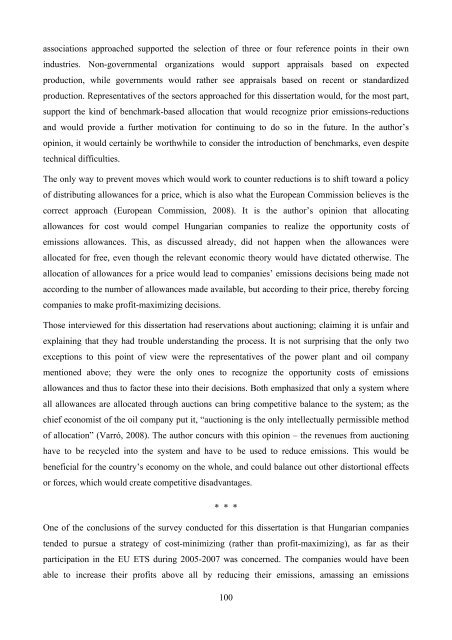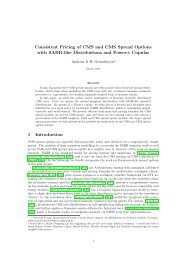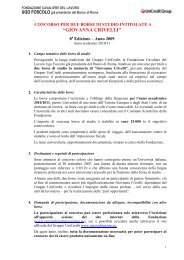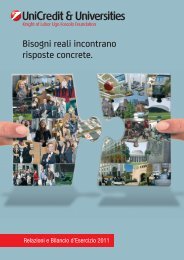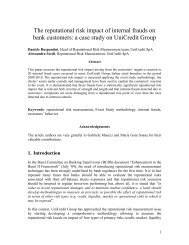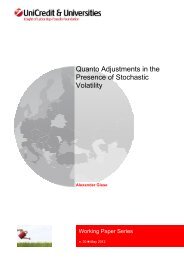Dóra Fazekas Carbon Market Implications for new EU - UniCredit ...
Dóra Fazekas Carbon Market Implications for new EU - UniCredit ...
Dóra Fazekas Carbon Market Implications for new EU - UniCredit ...
Create successful ePaper yourself
Turn your PDF publications into a flip-book with our unique Google optimized e-Paper software.
associations approached supported the selection of three or four reference points in their own<br />
industries. Non-governmental organizations would support appraisals based on expected<br />
production, while governments would rather see appraisals based on recent or standardized<br />
production. Representatives of the sectors approached <strong>for</strong> this dissertation would, <strong>for</strong> the most part,<br />
support the kind of benchmark-based allocation that would recognize prior emissions-reductions<br />
and would provide a further motivation <strong>for</strong> continuing to do so in the future. In the author’s<br />
opinion, it would certainly be worthwhile to consider the introduction of benchmarks, even despite<br />
technical difficulties.<br />
The only way to prevent moves which would work to counter reductions is to shift toward a policy<br />
of distributing allowances <strong>for</strong> a price, which is also what the European Commission believes is the<br />
correct approach (European Commission, 2008). It is the author’s opinion that allocating<br />
allowances <strong>for</strong> cost would compel Hungarian companies to realize the opportunity costs of<br />
emissions allowances. This, as discussed already, did not happen when the allowances were<br />
allocated <strong>for</strong> free, even though the relevant economic theory would have dictated otherwise. The<br />
allocation of allowances <strong>for</strong> a price would lead to companies’ emissions decisions being made not<br />
according to the number of allowances made available, but according to their price, thereby <strong>for</strong>cing<br />
companies to make profit-maximizing decisions.<br />
Those interviewed <strong>for</strong> this dissertation had reservations about auctioning; claiming it is unfair and<br />
explaining that they had trouble understanding the process. It is not surprising that the only two<br />
exceptions to this point of view were the representatives of the power plant and oil company<br />
mentioned above; they were the only ones to recognize the opportunity costs of emissions<br />
allowances and thus to factor these into their decisions. Both emphasized that only a system where<br />
all allowances are allocated through auctions can bring competitive balance to the system; as the<br />
chief economist of the oil company put it, “auctioning is the only intellectually permissible method<br />
of allocation” (Varró, 2008). The author concurs with this opinion – the revenues from auctioning<br />
have to be recycled into the system and have to be used to reduce emissions. This would be<br />
beneficial <strong>for</strong> the country’s economy on the whole, and could balance out other distortional effects<br />
or <strong>for</strong>ces, which would create competitive disadvantages.<br />
* * *<br />
One of the conclusions of the survey conducted <strong>for</strong> this dissertation is that Hungarian companies<br />
tended to pursue a strategy of cost-minimizing (rather than profit-maximizing), as far as their<br />
participation in the <strong>EU</strong> ETS during 2005-2007 was concerned. The companies would have been<br />
able to increase their profits above all by reducing their emissions, amassing an emissions<br />
100


